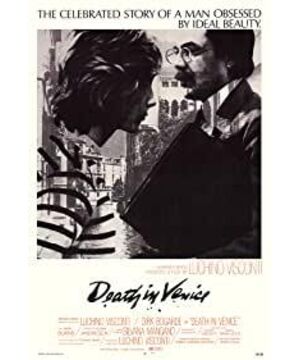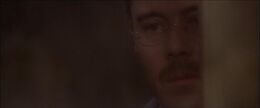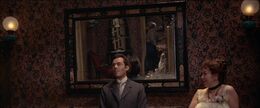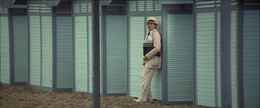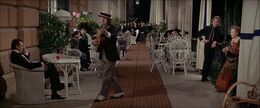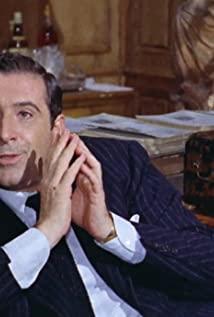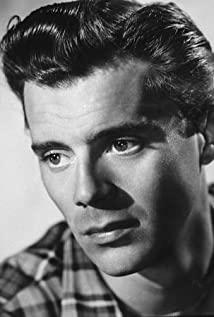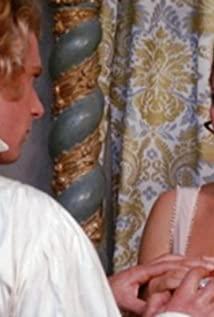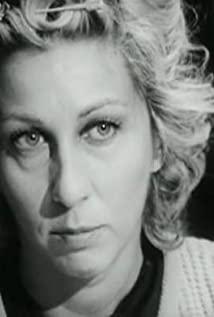An unpredictable pursuit of love seems to manifest the fact that their "love" would have ended without any disease, and finally turned into a short moment under the eternal sunset. However, between Mashenbach and Tazio, does it really prove the existence of love? Is the chasing game played by professors and boys really like the general public, an eternal interweaving of lust and love, spirit and flesh? If so, how to face the professor's consciousness fault? It seems that this trip to Venice is just a fragment of his life, reflecting a lonely soul following the pace of God.
Beard and the Brothel
When he was a young and promising professor, he had just married and had a daughter. It was a family happiness. At that time, he also believed in the idea that beauty is all because of beauty, which is Plato's eternal and noble idea. It denies the possibility of natural beauty, and will be the absolute beauty of the integration of truth, goodness and beauty. It does not allow any heterogeneous and divided things to appear inside. Therefore, the professor's music is the same as his body. His face is pure and handsome, classical and powerful, without the slightest trace of dust, while his music is balance and order, equally closed and self-sufficient, and meticulously complete. However, inside this self-contained entity, there are mutants. It is this mustache. Although the beard is small, it is deadly. It was the appearance of this beard that broke the integrity of the professor's face. Facing this sudden mutation, the professor's body was at a loss. The beard also implies aging. It is now a symbol of uncleanness for the professor. If we say that a professor who is still young, his body is neat and complete, just like the beauty of the indestructible idea, but at this time, the fragile body of this human world categorically denies this eternal possibility. What should I do to take a step back? There are only two options for the professor. One is to admit this fact, choose to face the threat of death, stand in front of nothingness and change strategy without fear, and reach the highest peak of life in a roundabout way. Second, either deny the possibility of aging, but denying it also means covering oneself and retreating oneself behind imagination. The professor's choice was simple and straightforward. He decided to take a vacation in Venice. This was an escape and an act of the weak.
In fact, in the memory segment, this evasion is more obvious. We still remember that the professor was attracted by the piano in the brothel. At the beginning, he was indeed captured by the beautiful sound of the piano, but then his attention shifted to the person who played the piano. There is no doubt that in the eyes of the professor at the time, this person is beautiful. But the brothel is a place that represents filth and uncleanness, full of poverty and disease, and death looms in the middle. This is completely incompatible with the professor's creed (in the time series of the professor's life, this is the first time he has a beard). As a result, the professor denied his feelings for prostitutes in the end, and he also denied and evaded such self at the same time. In the subsequent memory segment (the death of the professor's daughter), it is easy for us to think that the reason why the professor came to the brothel was probably to escape the incompleteness in reality. But he didn't expect that the brothel, which contained too much filthy space, had such a beautiful woman, and he would have a relationship with it. This contradicts the unity of truth, goodness and beauty. Truth, goodness and beauty are truth, morality and beauty in capitals. This represents the body of God, which is eternal and sublime, and the opposite is the devil. But the world is ambiguous. It is not simply either good or evil, true or false, or beautiful or ugly. The perceptual reality is fragmented, heterogeneous, and incomplete for each of us, and professors cannot escape it.
At the child
regardless of where the image of the child is pure, it would be one closest to the body of God. However, just as God can use the virgin to conceive, the devil will also reverse this image and reduce it to a prostitute.
The brothel and Venice in the film have a deeper intertextuality between these two spaces. First of all, we have to understand that the professor's motivation for going to the brothel should be to seek escape, it is the dissatisfaction and doubt of his own beliefs-this dissatisfaction may directly or indirectly point to death. Of course this is still the death of his daughter. And when I came to Venice, I just felt that I was going to die, and I wanted to use this southern European hot wind to relieve my overworked heart. Secondly, the beginning of coming to the brothel was the same as Venice, there was a sense of anxiety, he was so awkward, curled up in the mirror in embarrassment. Because the dirt here is unbearable, and Venice is the same. Finally, it is the appearance of the image of the virginity. In Venice, Tazio plays this role. He will first walk towards Venus by the sea, and then Apollo from a long range. This body is the representative of the gods in the world and the icon of the Christians. . But what about the brothel? This seems to be the profile of Tazio. It was not a virgin, but a prostitute, dirty and unbearable, and Maria of Modala after the devil's temptation.
We still remember that the director connected the two through a similar action of playing the piano. Perhaps for Visconti, he is not as unable to accept the beauty of perceptual reality like a professor. The beauty from Tazio is indeed transcendent. He is the perfect body dreamed by all mankind. He is neither male nor female, male and female. He transcends everything in the world, including gender, and becomes an eternal existence. But these only exist in the eyes of the professor. The boy in Visconti’s eyes is an existence inseparable from his environment. Such a boy was born in an ordinary family. He also played on the beach like other boys, and would stain his body. What's more, Tazio was also facing the threat of illness and death. We will see later that the professor learned of the plague in Venice and wanted to inform Tazio, but found that by doing so, he acknowledged his physical existence and once again affirmed his death. In fact, in every time the professor chases and peeks at Tazio, the reason why the professor chooses a hidden perspective is not willing to appear, because once the two sides have exchanges, it will inevitably be detrimental to Tazio. This is acknowledging that the other party is also A destructible body. In other words, if the professor communicates with him, he will ensure the latter's death. (This kind of logic can also explain why the professor was different before and after the relationship with the prostitute. He still could not accept this fact, and he and the environment contaminated this virgin body together). Therefore, in the professor's heart, he was willing to sacrifice and suppress his desire in order to maintain the latter. As everyone knows, this is self-deception, because regardless of the professor's approach, the hot wind from Asia Minor will slap Tazio's body with the kiss of death.
The hot wind did not invade the virgin, but it was the people who really caused the virgin to collapse. The professor's eyes were not narrow enough to accommodate only one person. He had to pay attention to the surrounding situation, and the ambiguity of this perceptual reality completely defeated the professor. He desperately discovered that the beauty from Tazio is actually the same as that prostitute. The professor is willing to believe that it is eternal and sublime, so he cannot accept the fact of a prostitute, and Visconti prefers to add two words after eternity-"a moment."
camera
At the end of the film, the tainted virgin walks to the sea in the image of Apollo. The hopeless professor finally reaches the highest point of his desire when he is dying. The professor is happy because he no longer has to endure such torture. In the last moment of his life, he quietly captured the most beautiful silhouette in the world. Visconti appeared at the right time (the camera in the film), and he told the audience that capturing such a moment does not need to cost life, a camera is enough.
This film has a great formal beauty, and a large part of it comes from the panning lens like flowing water. The embellishment of such shots completely eliminates the presence of language, but makes us go deep into the heart of the professor and become a true stream of consciousness movie. So how did Visconti do it? The answer is far from as simple as it seems. The essence of his lens movement is not a simple pan, but a kind of reflexivity from the inside of the lens. When the professor first met Tazio, Visconti patiently used more than a dozen lenses, all panning. But really looking down, we will find that the director is playing a game of gaze.
As a peeper, the professor was dull at first, so he would naturally choose to look around. But the simulant's subjective look around is absolutely not allowed to use the panning lens, which is not in line with the psychological reality of human beings. In other words, it will make people play and feel a little uncomfortable (of course, adapting to this topic has to be a new line, because the formal style of each era has a different degree of adaptation), use the next popular word In other words, it is alienation. The audience will take the initiative to ask questions, why does the director want to do this? As a result, Visconti was ready to come out, and his real goal was achieved. When our audience no longer asks what Mashenbach is watching and why, but goes deep into the camera behind the set, we have fallen into Visconti’s gaze law. In fact, here is back to the theme of the film. In the professor's gaze, he basically saw the god-like virgin, that virgin was complete and pure. If this dramatic action was only performed by the professor, there would be no tension at all. But now Visconti jumped out, and he pointed to the professor's nose and cursed: I was showing you the whole world, but you only noticed a silhouette of this world. Indeed, for the entire world, it is impossible to be a unified whole. The world is constantly undergoing pains, wind, frost, rain, and snow, all of which are pieces of the world torn apart. It is not the end point of an idea, but a peculiarity. Point the behemoth combined. For the professor, Visconti is synonymous with this trauma, which corresponds to not only the wandering of the gaze in the film, but also the assistant of the professor. In fact, the assistant had been attacking the professor from beginning to end, and even taunted the weak and sick professor with a victorious posture.
Visconti did what Thomas Mann didn't. His initiative came on the stage, torturing and beating the professor. Mashenbach thought that what he saw was all the reality, what he asked for was the essentials, but he picked up the sesame seeds and lost the watermelon. Although it is romantic to take only a drop of this kind of thousands of worlds, it is also very dangerous. What's more, the professor is not taking a drop in reality at all, he is hunting for things that don't exist. What is eternity? The answer was blocked by the professor. He wanted to possess life and bring life into the eternal trajectory, but the threats around him were pressing everywhere, suggesting that the moment of death was coming. Where is Visconti? He would say that if the professor was willing to figure out how the camera works, then he wouldn't have died so early.
Just as Visconti used a camera to let the professor (audience) see the collapse of his beliefs, he also used this camera to record that beautiful moment. It can be said that Visconti’s camera is not only a weapon for killing the professor, but also a sacred object of his own salvation. From the film to reality, the director really replaced the professor. He admitted that life is perishable, and recorded it with a camera at the most beautiful moment of life, so he could probably live with the little boy in the film. And there is no worries about the future.
Summary
If Mashenbach is a restless question mark, then Visconti is a calm and serene end, and Tazio is definitely an exclamation mark that keeps burning himself. When classical faith encounters modern society, what it believes in is bound to be overwhelmed. This is the retention of one era from another. What can nostalgia rely on? What makes eternity possible? The answer is hidden at the end of the film. The young man walking towards the sea raises his arms, and on the far right of the screen stands the greatest giant of the 20th century-the camera (camera)
View more about Death in Venice reviews


